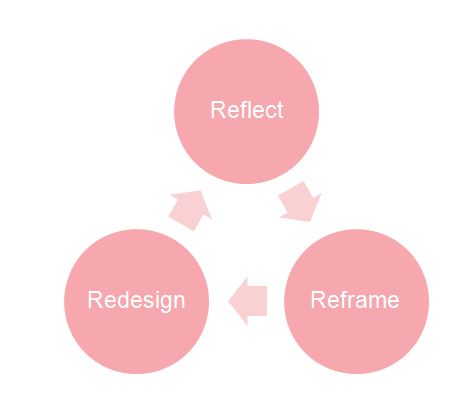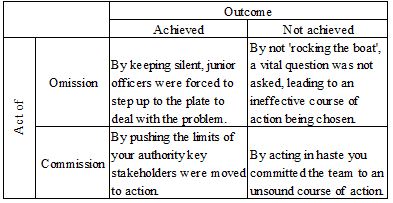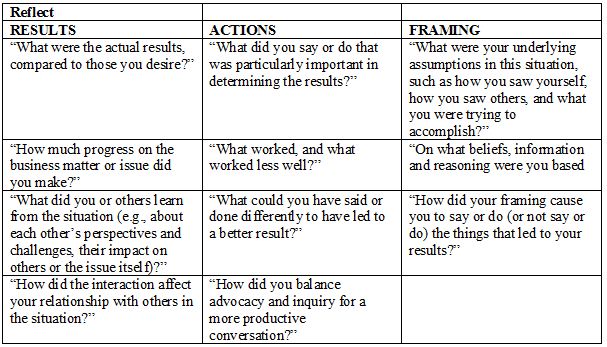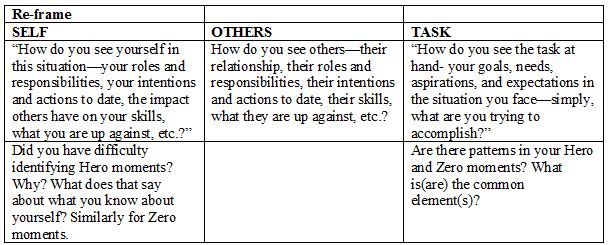MBS663 Leading The Engaged Enterprise Assessment Solutions
Assessment Detail:-
- Number of Words: 3000
Assessment 1
The goal of this reflection assignment is to allow you to gain an understanding of the assumptions that drive your thinking, the extent to which these assumptions drive actions within and between contexts and the extent to which you are currently practicing the capabilities of sensemaking, relating, visioning and inventing in order to build your leadership capability and/or to deal with adaptive challenges.

Carroll (2009, p43) summarises reflection as “the ability to think about the past, in the present for the future”. People commonly assert that the future is unwritten meaning that no one knows what the future is going to look like. Rather than being a glib statement, this is a profound truism that tells us that, while we may not be masters of our destiny, we are not victims of the past if we are able to learn its lessons. Turning to Figure 1, when things go wrong, most of us do our best to go through the entire cycle. However, do we have the tools to navigate the cycle successfully and effectively? If our evaluation or analysis, is off, our conclusions and plans may be erroneous, faulty or downright dangerous. On the flip when things go right, do we know why? Are we able to reproduce the success mindfully? To that end, we will use a simple tool to aid us, Witherspoon’s (2014) 3 Rs practice (See Figure 1)

To achieve this goal, Assignment 1 is structured into two parts.
- Assignment 1(a): a Hero and Zero write up 1,000 words (15%)
- Assignment 1(b): a final reflection (2,000 words) (25%)
- Journal entries (no grade but forms evidence for the 1(b) Reflection assignment)
Assignment 1(a) Hero/Zero Moments
Step 1:
1. Recall 2 particular types of events.
2. The first event is your Hero event.
(a) This describes your Hero moments. The hero moment is an important positive outcome in your past, personal, volunteer or professional, that happened as a result of you either performing an action (saying or doing something) that you should not have, or not performing an action that you should have. For the Hero moment write down:
-
- The positive outcome (the result and why it was important);
- Identify the specific action that you did or did not do (e.g. although I did not have the authority to make the promise to the customer, I did);
- the reason why you made the decision to act or not;
(b) The second event describes your Zero moment. Again, write down:
-
- The negative outcome (the result and why it was important);
- Identify the specific action that you did or did not do (e.g. although I did not have the authority to make the promise to the customer, I did);
- the reason why you made the decision to act or not;
(c) Note that these acts may be acts of omission or commission. Table 1 gives examples. You do NOT need to relate an incident in each quadrant.
Table 1: Examples of outcomes due to acts of commission or omission

Step 2:
(d) Determine if there are any links between the Hero and Zero moments. For example,:
having achieved a Hero moment, an attempt was made to perform the same actions except this time the result was a Zero moment.
– Having experienced a Zero moment, you learned a valuable lesson which you applied next time round, leading to a Hero moment.
Assignment 1(b): Reflective Leadership Journal
This assignment is a reflective assignment that is evidence-based. The evidence will be diary entries that will be used to inform your reflection. Learning to be reflexive is a key skill to develop in the work place as people will be telling you things about yourself. You have to decide how true or untrue they are.
Assignment 1b has two parts: diary entries and the Reflective Journal. The link between the two is that the diary entries will form the evidence, together with your Hero and Zero moments, that you will reflect upon in your Reflective Journal. If you have no diary entries, you can only reflect upon the Hero and Zero moments using the lenses provided by concepts in the course.
Using Witherspoon’s Practices, use the data from your Hero and Zero moments, your diary entries or any insight gained over the teaching period to enhance your understanding of yourself. The goal is to gain insight to the lessons of your experiences. This is the most important part of this assignment. There are four components to this assignment:
- report,
- reflect
- reframe and
- Re-design.
Reflect:
Table 1: Question triggers from Witherspoon 2014

Re-frame:
Table 2: Question triggers based on author and Witherspoon 2014

By the end of this step, you should be in a position to evaluate your own DLM capabilities. Such as:
- To what extent do you practice the capabilities of the DLM?
- Are you a good Sensemaker? What evidence do you have?
- Are you good at Relating? What evidence do you have?
- Are you good at Visioning? What evidence do you have?
- Are you good at Inventing? What evidence do you have?
Why do you rate yourself this way? Do you think your peers and subordinates would rate you the same way?
Do you want MBS663 Leading The Engaged Enterprise Assessment Answers? Get a step closer to achieving higher grades with our Assignment Help Australia from the certified MBA Expert Writers. For getting our MBA Assignment Help Services, place your order now.
For REF… Use: #getanswers2001933
The post MBS663 Leading The Engaged Enterprise Assessment Answers appeared first on Assignment Help Australia Site.

